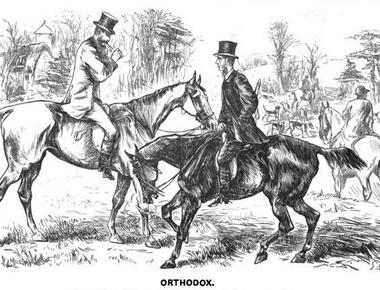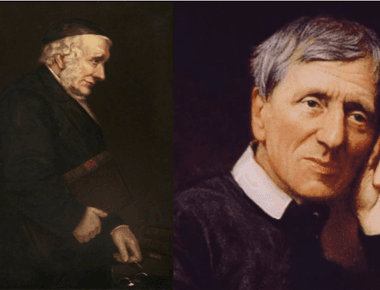
This essay seeks to clarify the nature of science. It examines popular approaches to science, these approaches’ potential effects, and the perspective that theology can provide to our potential misunderstandings of science.
This essay seeks to clarify the nature of science. It examines popular approaches to science, these approaches’ potential effects, and the perspective that theology can provide to our potential misunderstandings of science.
Part I presents “the public face of Newman’s educational endeavour,” while Part II provides “the behind-the-scenes picture by telling the reality of Newman’s experience in Ireland” (xv).
It was all the more remarkable when I discovered a collection of “Newman detractors” on the premises, a collection indicating the conflict between Newman, the champion of Roman Catholicism in England, and mainly evangelical Free Church academics around the end of the nineteenth century and the beginning of the twentieth century.
In the scholarly literature, John Locke (1632–1704) features as a formative influence on Newman’s philosophical thought. What usually gets highlighted, for example in the Essay in Aid of a Grammar of Assent, are Newman’s criticism of Locke’s notion of degreed assent and his call for a broader and more nuanced account of the rationality of religious belief. However, some have argued that the Grammar largely focuses on the psychological conditions of religious belief.
Despite their differences, and although Newman and Browning never met, they shared similar life experiences, and literary techniques, and both were concerned with the justification of Christianity, as well as the struggle between faith and doubt.
The National Institute for Newman Studies (NINS) is pleased to announce the ongoing expansion of our digital collections through formal agreements with several institutions in England.
An important theological theme in the Christian tradition is that of the divine ideas or <em>logoi</em> in the mind or Word of God by which God knows and loves in himself eternally all the ways that creatures can or do participate in a living likeness of him.
For readers who are interested in using the Pusey House collections for their research, here is an overview of what we have. Only original materials have been digitized, so the digital collection is slightly smaller than the physical one, but every authentic Newman item we have should now be accessible online.
Pusey’s appraisal of Mariology—a polemic containing a mixture of historical, theological and anecdotal evidence—was, on the whole, untrue and mostly a caricature; yet as Newman would be forced to admit in his formal published reply to Pusey in 1866, the <em>Letter to Pusey</em>, there was partial veracity to his claim that at times Mariology, in some of its devotional outpourings, has obscured devotion to God, especially God’s loving mediation brought to humanity through the Incarnation.
Newman’s influence is not relegated to the English-speaking world only; rather, it can be seen in the Spanish-speaking world as well.
QUICK LINKS








